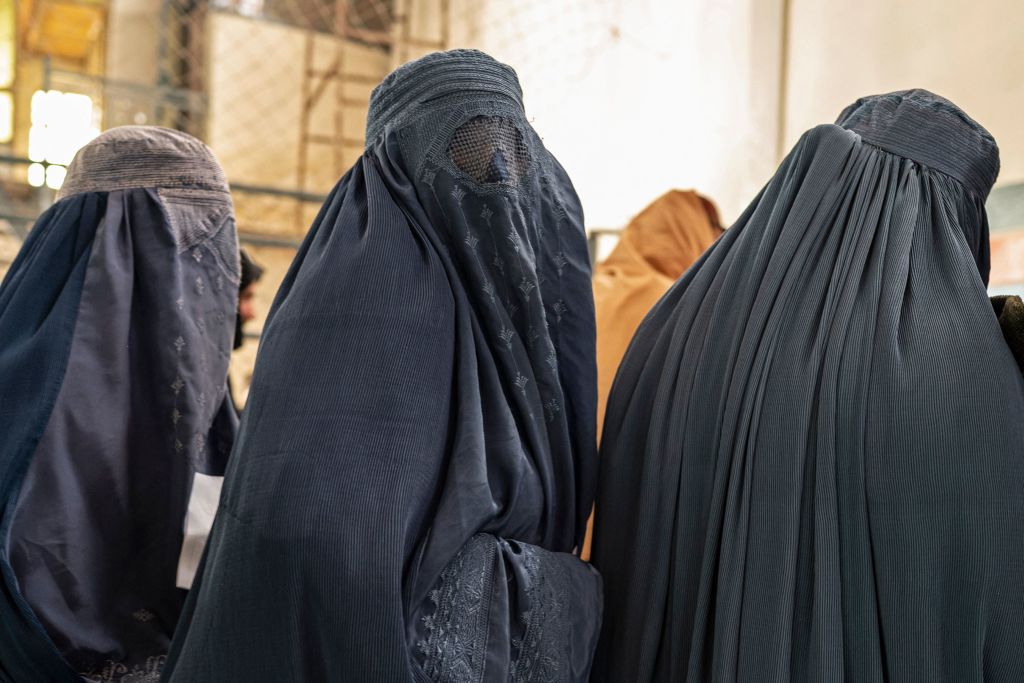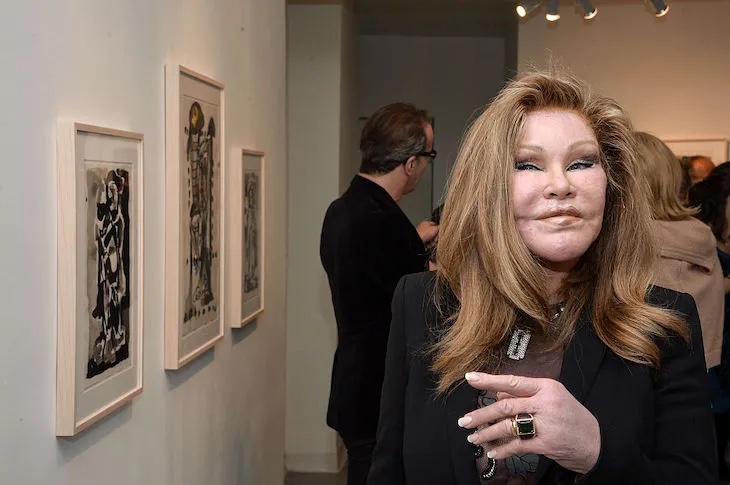When the thousands of international athletes march proudly behind their national flags along the banks of the River Seine in Paris to open the Olympic Games in a few months, the country that usually leads the parade, behind the host, will be absent.
Afghanistan, first in the alphabetical order of nations, has been captured by the Taliban, an extreme Islamist movement that does not allow women to play sport. It also bans girls from high school and university, women from work, and all females from walking in public parks, even if they do leave their homes fully-covered and accompanied by a mandatory male relative.
Some are calling for formal bans on Afghanistan’s participation as one of the few ways to hold the Taliban to account
As the Taliban are ideologically opposed to complying with the fundamental condition of Olympics participation — sending a mixed-gender team of competitors — Afghanistan will be absent from Paris.
“There will be no teams from Afghanistan” in Paris, says Najibullah Fayez, formerly the foreign relations manager of Afghanistan’s National Olympic Committee, now living in exile.
James Macleod, the IOC’s director of National Olympic Committee Relations and Olympic Solidarity, said the IOC had repeatedly urged the Taliban to “reverse the current restrictions on access to sport for women and young girls in Afghanistan” as a condition of participation.
In a statement in March, following a meeting of the IOC’s executive board that discussed Afghanistan’s participation in Paris, he said: “The IOC confirmed its objective is to have that mixed-gender team for those games.”
Misogyny is state policy for the Taliban, which rakes in millions of dollars from the illegal drugs trade as well as theft of international aid meant to alleviate the hunger and desperation of ordinary people. It is not recognised as the legitimate government of Afghanistan.
Fayez said that unless some Afghan sportspeople can get wildcards — which is extremely unlikely — Afghanistan will not be represented in Paris.
“The officials of the IOC follow the charter, and the charter says that any country’s NOC that is not following the criteria or violates the charter should be issued a warning, sanctioned, and even have recognition withdrawn; they are exercising these options,” Fayez said, who lives in exile.
“Now, the IOC has imposed financial sanctions on Afghanistan’s NOC and does not recognize the current officials in Afghanistan,” he said.
It’s déjà vu for the Taliban, which is led by the same coterie of sanctioned terrorists as the last time the group controlled Afghanistan, from 1996 to 2001.
The IOC suspended Afghanistan in 1999, and the country did not compete in the 2000 Sydney Games, “because of their discrimination against women,” Fayez said.
Cricket Australia, the country’s governing body for the sport, is the only sporting organization in the world to formally sanction contact with Afghanistan in reaction to its treatment of women and girls generally, and the ban on women playing sport in particular.
CA has twice postponed tournaments with Afghanistan, including a three-match T20 series that had been scheduled for August, due to “its strong commitment to supporting participation by women and girls in cricket around the world.”
Since IOC representatives first met with the Taliban in December, 2022, when they expressed “serious concern” and “strongly condemned” the misogynistic repression, conditions for women and girls in Afghanistan have become even worse.
The Taliban’s supreme leader, Haibatullah Arkundzada, announced in his Eid message in early April that the Taliban will soon start stoning women to death for such “crimes” as adultery, which they define very loosely.
Women are not the only targets of the Taliban’s barbarity. The State Department said this week that 90 percent of people in Taliban jails are “political prisoners.” That’s despite an offer of a “general amnesty” for people who worked for the previous government or were in the security forces that fought a twenty-year war against their return.
There is no doubt that Afghanistan’s previous government was corrupt and largely inept. There was, however, a constitution that guaranteed equality and rights to all the people of the country, including women, and ethnic and religious minorities that are now regularly brutalized.
The United Nations Security Council and the Congress-mandated Special Inspector General for Afghanistan Reconstruction regularly detail the Taliban’s abuses, and the safe haven they give to dozens of proscribed jihadist organizations. This includes al-Qaeda, which is once again running militant training camps in Afghanistan, and taking a share in proceeds of drugs trafficking and illicit mining that funds its operations in the Middle East and Africa. (The Islamic State offshoot, IS-Khorasan Province, widely held responsible for the March 22 Moscow atrocity, is also based in Afghanistan.)
Regardless of how widely known these excesses are, the international community continues to send billions of dollars in aid to Afghanistan, in spite of evidence that much of it is being stolen by the Taliban for their own supporters.
As heartbreaking as it is for Afghan sportsmen and sportswomen to be excluded from international competition, some are calling for formal bans on Afghanistan’s participation as one of the few ways to hold the Taliban to account.
Friba Rezayee is a judoka who made history at the Athens Games in 2004 when, aged eighteen years old, she became the first women to compete for Afghanistan at the Olympics. Speaking to Reuters, she said the Taliban’s human rights record should be enough for the IOC to ban Afghanistan.
When she stepped out to compete in Athens, Rezayee believed Afghan women “would only progress from here,” she said. “I saw the important changes it was making in every single girl’s life.”
The Taliban’s return of power in Afghanistan had thrown everything into reverse, she said. “It feels like whatever I did to support women’s rights and gender equality back in 2004, it has been all undone by the IOC and by the Taliban and people who tolerate the Taliban.”
This article was originally published on The Spectator’s UK website.


























Leave a Reply